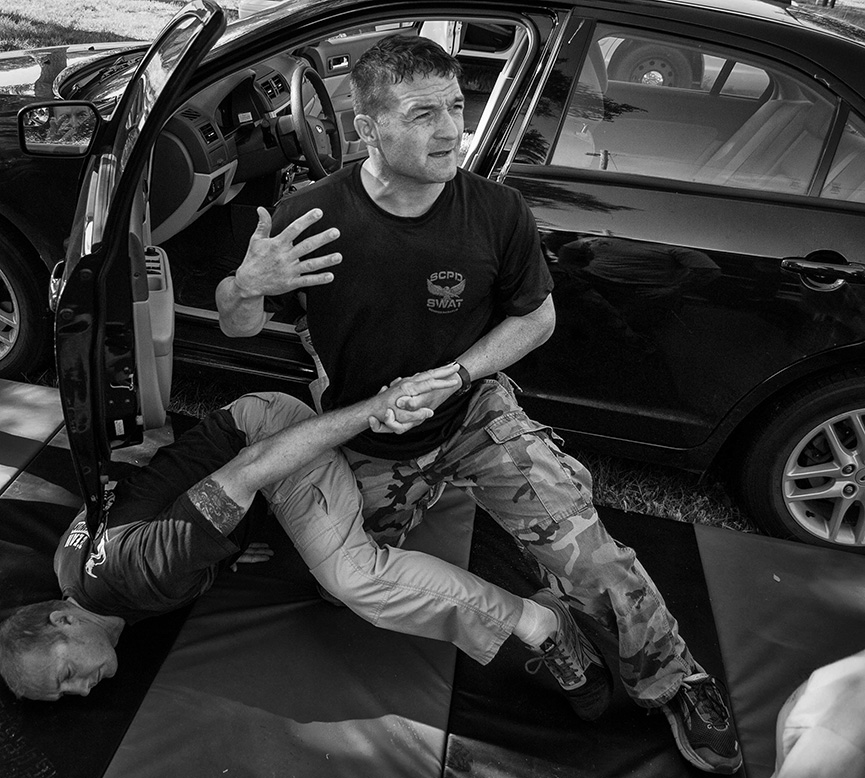
This 5-Day Course is a carefully constructed matrix of principles, strategies, & training drills designed to address a wide variety of threats currently facing law enforcement officers when handling subjects.
It is a flexible set of applicable strategies and techniques to be used in conjunction with a proper mind-set. We understand implicitly that law enforcement officers must resolve their situations in view of the appropriate Rules of Engagement/Use of Force Policies as dictated by the reasonable application force, if and when force is required.
In today’s higher threat situations, your job may not always be entirely defensive in nature. Regardless you must use the appropriate level of force required to resolve the situation, no more, no less.
The basis of our approach has been formed through a constant interaction with Law Enforcement and Military individuals and teams over the past twenty years.
During this extended period of time, we have sought to solve a wide variety of problems facing law enforcement. This course is the embodiment of the solutions.
No curriculum can fully account for all known equipment, encompass the vast number of potential techniques, or address all the methodologies used to meet the mission requirements faced by law enforcement agencies across the country. Therefore, this course of instruction has an open architecture. It is designed from the outset to be modified, adapted, and improved upon.
This program is crafted to allow you to fit in and use what you already know and are required to use. We are not going to suggest that you abandon working/proven solutions. This program gives you strong skeleton, a foundation from which to build a solid structure upon.
We are not going to focus in on X number of techniques, trying to stuff a confusing matrix of sequences into your operating system. It is our opinion, that viewing any confrontation as a simple matter of: “I see this, therefore I should select technique number 1,2, or 3 and fit in here” will more than likely fail under duress.
Therefore, we are going to present a way of looking at confrontations that will allow you to use the appropriate level of force whenever force is required, whatever that level of force is.
We are going to present from the outset themes and variations on themes that you can adapt to your personal situation as required.
We are not going to presumptuously tell you how to do your job in your area of expertise. It will be up to you to tailor your presentations and agency’s instruction to fit the specific rules of engagement and use of force policies mandated by federal and state law, as well as your departmental polices and procedures.
Come experience a well-thought out, focused and properly administered program of instruction to potential improve your own departments model. You leave with a solid understanding of how to evaluate and improve your current programs.
Pistol Retention Intro - Sioux City, Police/SWAT - August 2024
Overviews - From Courses conducted in 2015

